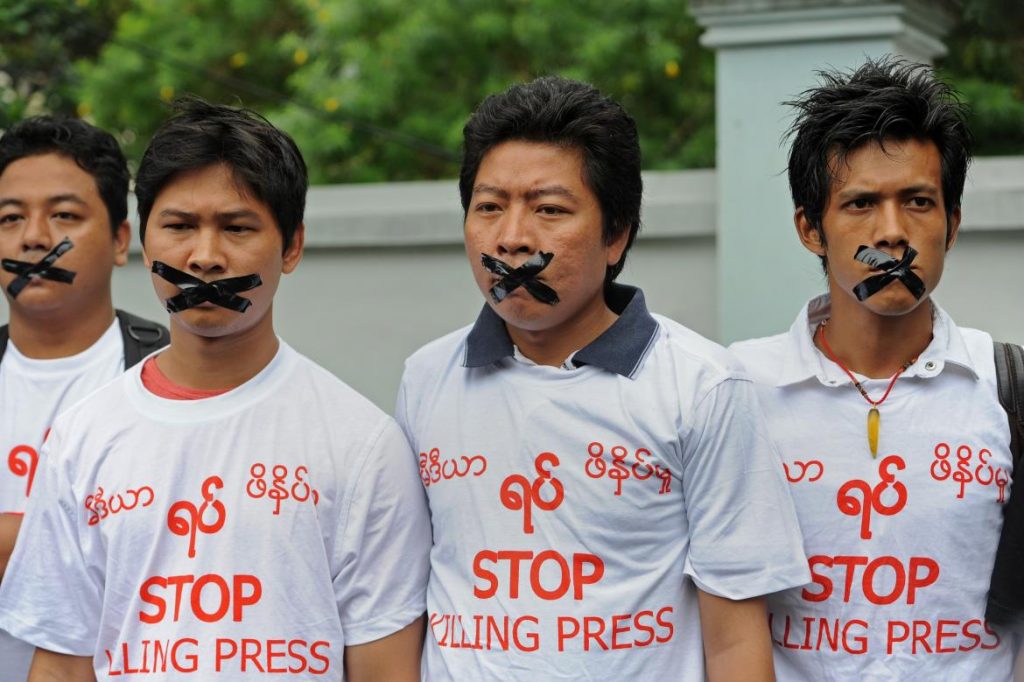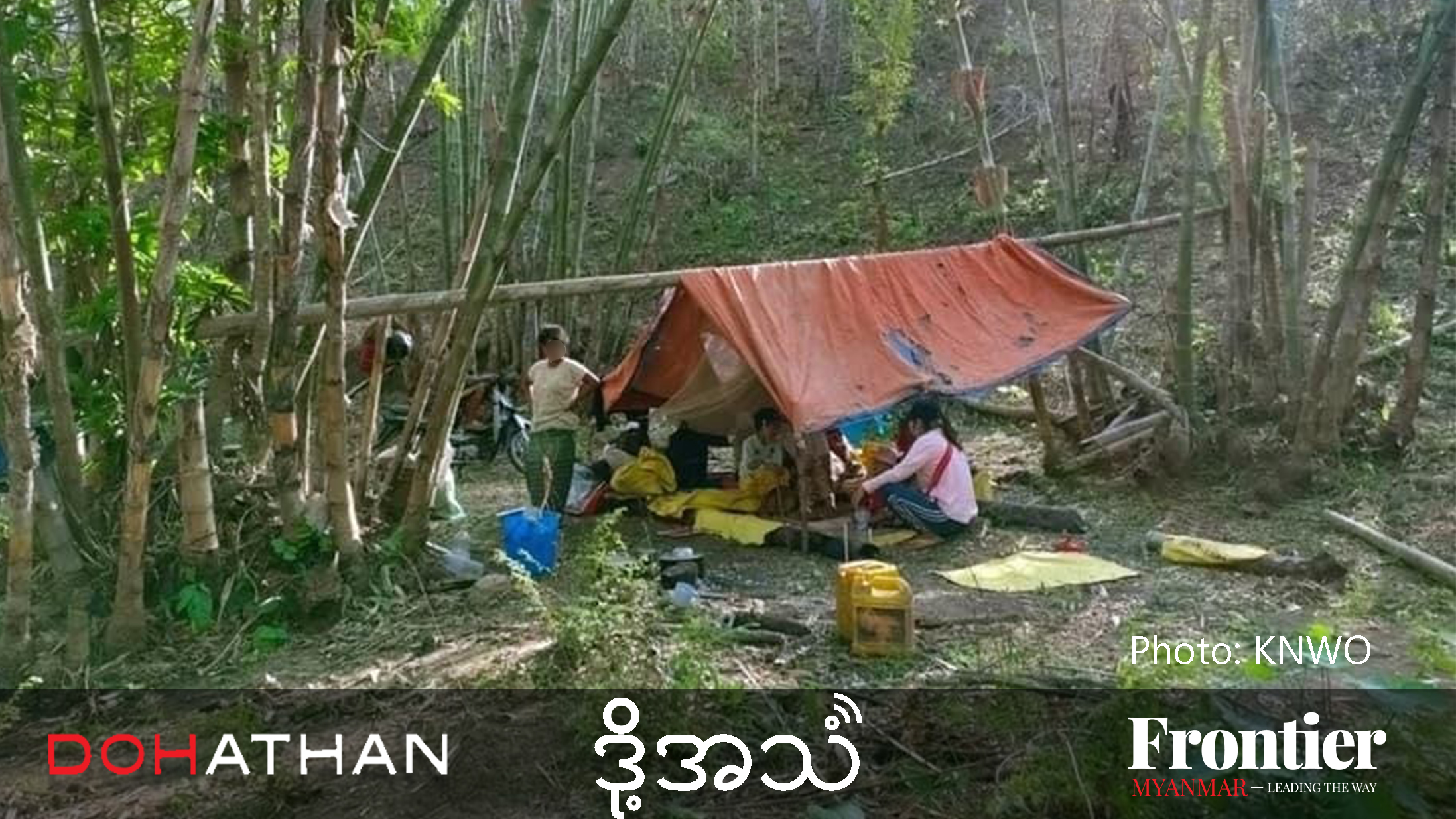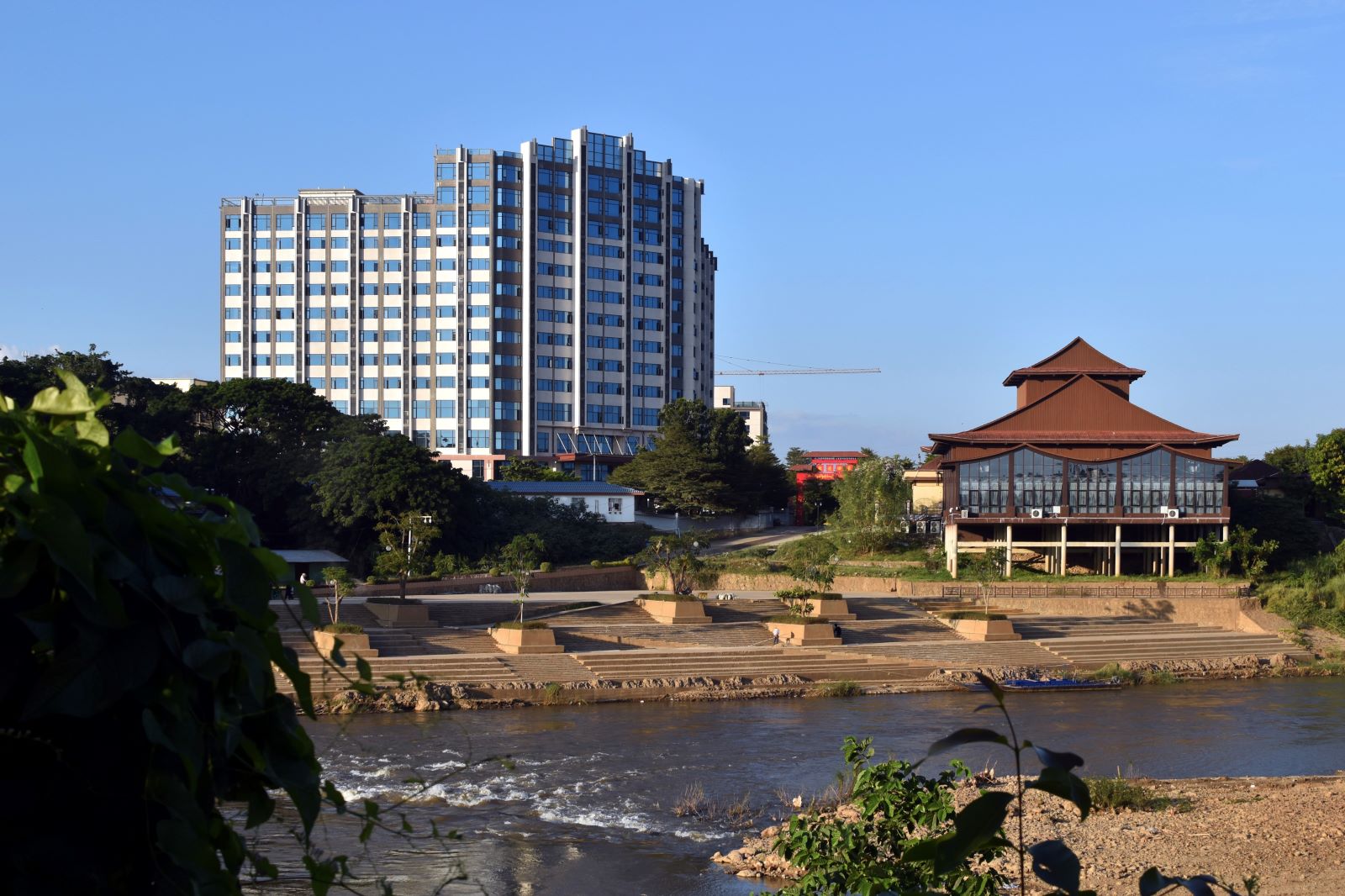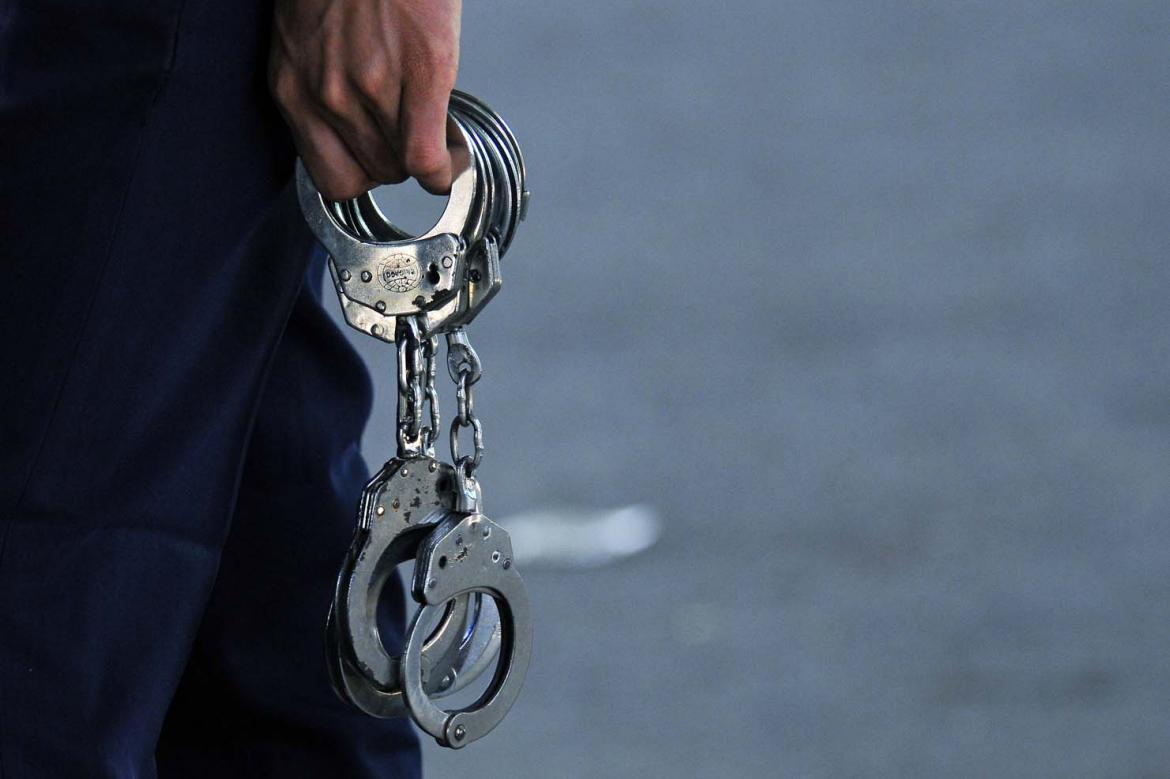Successive Myanmar governments have tried to erase the legacy of colonial rule but a number of archaic laws continue to be enforced.
By OLIVER SLOW | FRONTIER
Although past civilian and military governments had a clear dislike of British rule, many of the oppressive laws that were introduced during the colonial era to suppress dissent remain on the books.
The military junta that governed Myanmar for nearly five decades went to great lengths to erase the legacy of British colonial rule, which ended after more than 60 years on January 4, 1948.
One legacy that was retained was the judicial system the British used against nationalists hostile to foreign rule, including laws that remain in place.
As Myanmar continues its tentative journey from military dictatorship to fully-fledged democracy, one of the challenges it faces is the number of laws used to harass and detain protesters and others.
Support more independent journalism like this. Sign up to be a Frontier member.
The following list features some of the more prominent colonial-era laws that remain in force.
Official Secrets Act (1923)
The Official Secrets Act was used by the British to stifle freedom of expression. It criminalises the possession and distribution of information that is deemed classified by the state.
Under the Act, it is a crime to communicate information that could, directly or indirectly, affect the safety of the state, or to share information that could be “useful to the enemy”.
In July 2014, the so-called “Unity Five” – four reporters and the chief executive of the now-defunct Unity Journal – were each sentenced to 10 years in jail with hard labour under the Official Secrets Act over a report alleging that the military was producing chemical weapons at a factory in Magwe Region, a claim the government denied. In October that year, the jail sentences against the “Unity Five” were reduced on appeal to seven years’ each.
Human rights groups say the law prevents transparency and accountability of government and is in direct violation of Article 19 of the Universal Declaration of Human Rights. It states: “Everyone has the right to freedom of opinion and expression; this right includes freedom to hold opinions without interference and to seek, receive, and impart information and ideas through any media and regardless of frontiers.”
The Assistance Association of Political Prisoners (Burma) said in a report last year that the overly broad nature of the Official Secrets Act meant that critics of the government could be punished under the guise of protecting national security.
Unlawful Associations Act (1908)
The Unlawful Associations Act is most commonly used against members of ethnic minority groups, said U Robert Sann Aung, one of Myanmar’s best known human rights lawyers.
An unlawful association is defined as one that “encourages or aids persons to commit acts of violence or intimidation, or of which the members habitually commit such acts.” The president has the power to declare an association unlawful.
One of the most high-profile cases under this old British law was brought against displaced Kachin farmer Brang Shawng, who in July 2013 was sentenced to two years in prison after being accused of being a member of the Kachin Independence Army. Brang Shawng, a father of two, was arrested in a camp for IDPs and charged under Section 17(1) of the Unlawful Associations Act and his lawyer and family said he was subjected to torture.
Many groups have criticised the Act, saying it contradicts Article 354 of the 2008 Constitution. Article 354 says in part that every citizen has the right to express and publish opinions, assemble peacefully without arms and hold processions, and to form associations and organisations.
Arms Act (1878)
The Arms Act prohibits the possession, production and use of weapons and was mainly used by the British against those fighting for independence. Since independence, successive governments have deployed the law to prevent ethnic groups from acquiring weapons.
There have been calls in the Union parliament for amendments to the law. In common with many laws inherited from the British colonial authorities, it exists only in English, and MPs have also called for it to be translated in Myanmar.
In 2014 the government used the law to crack down on the owners of replica guns used to play a game known as airsoft. Police made various raids and the Myanmar Times reported that a man was changed under the Act for allegedly owning a weapon without a licence.
Airsoft weapons, which fire metal or plastic pellets, were developed in the 1970s and are legal in most parts of the world, although players are usually required to wear face protection.
Penal Code: Articles 295/295(a)
Myanmar’s “religious offence” laws attracted considerable attention last year when the owner and two managers of a Yangon bar were jailed over a promotional flyer for a cheap drink night that featured an image of the Buddha wearing headphones.
The trio, two Myanmar and a New Zealander, were each sentenced to two-and-a-half years, including two years with hard labour for insulting religion. They were released under amnesty last month.
Article 295 refers to “defiling a place of worship with intent to insult the religion of any class” and 295(a) proscribes deliberate and malicious acts “intended to outrage religious feelings”.
In June last year, columnist and former National League for Democracy information officer U Htin Lin Oo, was sentenced to two years prison with hard labour for causing religious offence.
He was charged over a speech at a literary event the previous October in which he criticised the use of Buddhism as a tool for extreme nationalism.
Members of the extreme nationalist monk group, Ma Ba Tha, were conspicuous by their presence at both trials.
Penal Code: Article 377
Article 377 of the Penal Code is often regarded as Myanmar’s sodomy law because it prohibits “carnal intercourse against the order of nature with any man, woman or animal”.
While Myanmar is not the only country to have inherited such legislation from former British colonial rulers, many others have abolished such laws.
Although the law is rarely enforced, LGBT activist U Aung Myo Min said it is commonly used by police to harass, intimidate and extort money from members of the lesbian, gay, bisexual and transgender community.
Penal Code: Article 505(b)
Section 505(b) of the Penal Code is commonly used to target political activists. It criminalises the act of publishing or circulating information “with intent to cause fear or alarm to the public”.
Many activists have been charged under this law. They include Daw Naw Ohn Hla, who was sentenced to two years’ jail in 2013 over a protest against the controversial Letpadaung copper mine in Sagaing Region.
“Overly vague terms such as ‘offense against the State’ and ‘public tranquillity’ leave this section of the law open to abuse by the Burma authorities,” the AAPP-B said in its report last year.







